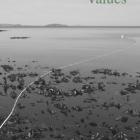Shockley, Kenneth. “Environmental Policy With Integrity: A Lesson from the Discursive Dilemma.” Environmental Values 18, no. 2 (2009): 177–99. doi: 10.3197/096327109X438053. Republished by the Environment & Society Portal, Multimedia Library. http://www.environmentandsociety.org/node/7501.
In response to what has been called the discursive dilemma, Christian List has argued that the nature of the public agenda facing deliberative bodies indicates the appropriate form of decision procedure or deliberative process. In this paper I consider the particular case of environmental policy where we are faced with pressures not only from deliberators and stakeholders, but also in response to dynamic changes in the environment itself. As a consequence of this dilemma I argue that insofar as the focus of a policy forming body is on the formation of viable environmental policy, rather than on a set of pre-existent ideological commitments, deliberative agents should be responsive as a unified body to the pressures of precedent, the best available science, and their own best individual judgments. In the case of environmental policy the dilemma pressures deliberative bodies to display what Ronald Dworkin has called integrity even in cases where this requires those deliberative bodies to sacrifice being maximally responsive to the preferences of individual deliberators.
— Text from The White Horse Press website
All rights reserved. © 2009 The White Horse Press


